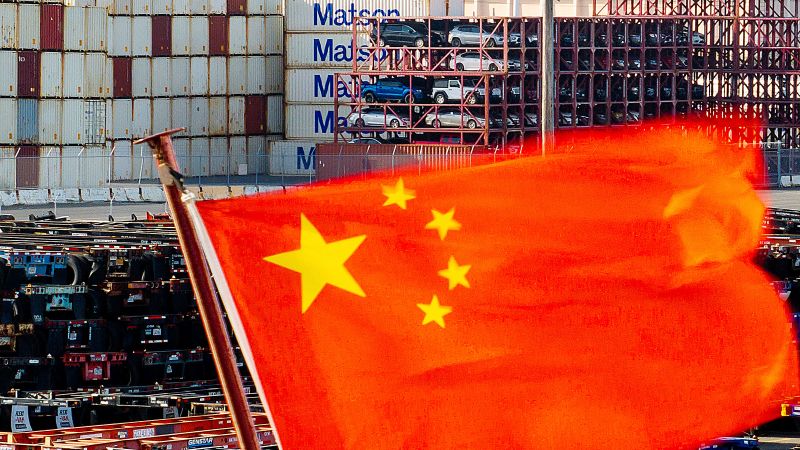CNN
—
The United States has unveiled plans to impose new port fees on Chinese ships, saying it aims to revive American shipbuilding against China’s dominance in the industry.
President Donald Trump has embarked on a sweeping trade war with China, a move his administration portrays as a bid to bring manufacturing back to the US but that critics and many economists fear could trigger a global recession and increased prices for consumers.
The Federal Register notice posted by the US Trade Representative (USTR) on Thursday said the US plans to charge fees on all Chinese-built and -owned ships docking in US ports based on net tonnage or goods carried on each voyage.
The new fees will be enforced in 180 days and will be rolled out in a phased manner and may be raised in coming years, according to the USTR notice.
The latest announcement backtracks from proposals floated in February to charge China-built ships of up to $1.5 million per port call, which had prompted a widespread industry backlash, Reuters reported.
“Ships and shipping are vital to American economic security and the free flow of commerce,” US Trade Representative Jamieson Greer said in a statement.
“The Trump administration’s actions will begin to reverse Chinese dominance, address threats to the US supply chain, and send a demand signal for US-built ships.”
Beijing said on Friday that the US plan would “fail.”
At a regular press conference, China’s Ministry of Foreign Affairs spokesman Lin Jian said imposing port fees and adding tariffs on loading and unloading equipment were “measures that harms others and the US itself.”
“It not only raises global shipping costs and disrupts the stability of the global industry but also increases inflation pressures in US, harming the interests of American consumers and businesses,” Lin said, adding that it would “eventually fail to revitalize the US shipbuilding industry.”
From October 14, Chinese-built and owned ships will be charged $50 a net ton, a rate that will increase by $30 a year over the next three years, Reuters reported. That will apply if the fee is higher than an alternative calculation method that charges $120 for each container discharged, rising to $250 after three years.
Chinese-built ships owned by non-Chinese firms will be charged $18 a net ton, with annual fee increases of $5 over the same period, Reuters added.
The levy on Chinese cargo vessels adds to the escalating trade tensions between the world’s two largest economies. Trump has already hiked tariffs to a combined 145% on Chinese-made goods while Beijing has retaliated with 125% duties on US goods.
Speaking to reporters about tariffs at the White House earlier Thursday, Trump signaled a potential halt of the tit-for-tat tariff hikes, which China has described as a “meaningless” numbers game.
“I don’t want them to go higher because at a certain point you make it where people don’t buy,” he said.
Beijing said last Friday it does not intend to lift tariffs on US goods higher than the rate it has announced.

